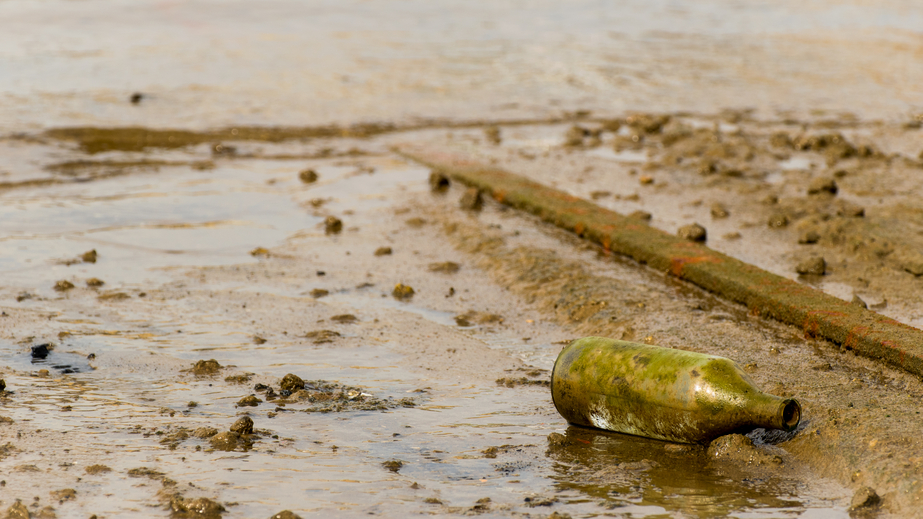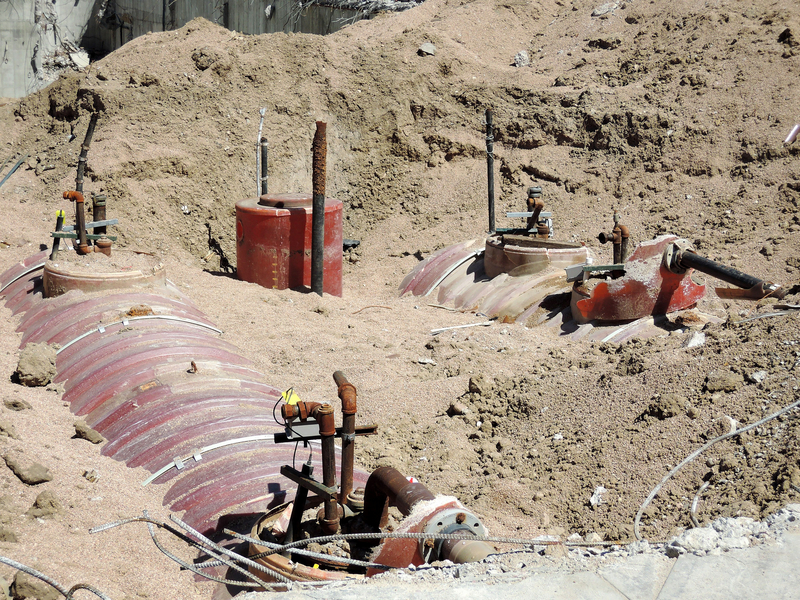District of Columbia Environmental and Ethics 20 PDH Discount Package 1
Natural Attenuation of the Lead Scavengers EDB and 1,2-DCA (C04-047)
Release Detection for Underground Storage Tanks and Piping (C04-050)
Ethical Issue: Deciding if Something is a Gift or a Bribe (LE1-007)

This online engineering PDH course establishes criteria and guidance for landfill gas (LFG) collection and treatment systems. In addition, this course provides information about the design of systems used to monitor, collect, transport, and treat gas from municipal, industrial, and hazardous waste landfills.
LFG is produced by the biological decomposition of general solid waste refuse and other organic materials disposed of in the landfill. Its production typically begins within a year of waste placement, and may continue up to 50 years after landfill closure, with peak LFG production for any given disposal cell occurring within the first or second year of waste placement. The total LFG production rate increases as more waste is added to the landfill.
This course aims to provide information specifically relating to landfill gas collection systems in order to help landfill employees understand the available equipment and how and when to use them.
This 11 PDH online course is applicable to civil, environmental, geotechnical engineers, construction managers and landfill operators seeking an introduction to the operation and maintenance of landfill gas collection systems.
This PE continuing education course is intended to provide you with the following specific knowledge and skills:
- Understanding the purpose of landfill gas collection systems
- Learning how to design landfill gas collection systems
- Learning how to design landfill gas treatment systems
- Familiarizing with the operation and maintenance of landfill gas collection systems
- Familiarizing with the safety procedures and regulations of landfill gas collection systems
Upon successful completion of the quiz, print your Certificate of Completion instantly. (Note: if you are paying by check or money order, you will be able to print it after we receive your payment.) For your convenience, we will also email it to you. Please note that you can log in to your account at any time to access and print your Certificate of Completion.

This online engineering PDH course reviews the current knowledge of the transport and fate of EDB and 1,2-DCA in ground water. It also provides information on the distribution of EDB and 1,2-DCA at motor fuel release sites that was collected during a survey of sites coordinated by the U. S. EPA Office of Underground Storage Tanks and the Association of State and Territorial Solid Waste Management Officials (ASTSWMO) and evaluates the associated chance of contaminating ground water.
Lead was effectively banned in gasoline in the USA before the underground storage tank program was fully implemented. As a result, only a portion of the state agencies that implement the federal UST program routinely monitor for EDB and 1,2-DCA at gasoline spill sites. In many states, little is known of the risk from EDB and 1,2-DCA at old leaded gasoline spill sites. Monitored Natural Attenuation (MNA) is widely used by State Agencies to manage the risk from other fuel components, such as benzene, in ground water. The appropriate application of MNA requires a solid understanding of the behavior of the contaminants in ground water.
This 4 PDH online course is applicable to all civil, environmental or chemical engineers, as well technical personnel who conduct risk evaluations for EDB or 1,2-DCA at specific motor fuel release sites, and for the technical staff of regulatory agencies that review the risk evaluations and make decisions concerning risk management and cleanup of the contamination. It is also useful for those who must apportion resources for monitoring and risk management of the hazard associated with EDB, benzene, and 1,2 DCA in ground water used for drinking water.
This PE continuing education course is intended to provide you with the following specific knowledge and skills:
- Understanding the use of EDB and 1,2-DCA in leaded motor fuel
- Familiarizing with the regulation of motor fuel storage to protect ground water and drinking water
- Learning about investigations of EDB and 1,2-DCA at motor fuel release sites
- Familiarizing with the conceptual model of a motor fuel release in the subsurface
- Learning about attenuation caused by physical processes
- Learning about attenuation caused by abiotic transformation or biodegradation
- Applications of Compound Specific Isotope Analysis (CSIA) to document biodegradation and/or abiotic transformation of EDB and 1,2-DCA
- Understanding the distribution of EDB and 1,2-DCA at motor fuel release sites, and the associated chance of contaminating ground water
Upon successful completion of the quiz, print your Certificate of Completion instantly. (Note: if you are paying by check or money order, you will be able to print it after we receive your payment.) For your convenience, we will also email it to you. Please note that you can log in to your account at any time to access and print your Certificate of Completion.

This online engineering PDH course presents information about the 2015 federal underground storage tank (UST) system requirements and regulations. UST and its underground piping must have release detection to comply with federal law. In addition to complying with federal law, some implementing agencies may have additional regulations which apply to the system.
Each of the sections herein focus on one release detection method for underground tanks and/or the requirements for underground piping. You will find answers in this booklet to basic questions about how release detection methods work and which methods are best for your UST site.
As of September 2015, over 528,000 UST releases were confirmed since the UST program was implemented. At sites without release detection, contamination can spread undetected, requiring difficult and costly clean-ups.
If you have effective release detection, you can respond quickly to signs of releases. You can minimize the extent of or eliminate potential for environmental damage and the threat to human health and safety. Early action also protects you from high costs that can result from cleaning up extensive releases and responding to third-party liability claims.
This 4 PDH online course is applicable to petroleum engineers, owners/operators, and personnel involved with the release detection of underground storage tanks.
This PE continuing education course is intended to provide you with the following specific knowledge and skills:
- Learning the basic release detection requirements for underground storage tanks (USTs) and piping
- Understanding the different release detection methods for USTs and choosing the best option for a given application
- Familiarizing with the federal regulatory requirements for release detection
Upon successful completion of the quiz, print your Certificate of Completion instantly. (Note: if you are paying by check or money order, you will be able to print it after we receive your payment.) For your convenience, we will also email it to you. Please note that you can log in to your account at any time to access and print your Certificate of Completion.

This online engineering PDH course will establish, through the presentation of many examples, the principles of distinguishing between a gift and a bribe.
The federal government has formulated detailed rules covering gifts given to executive-branch employees in many situations. The rules are published in the Code of Federal Regulations (CFR) and are illustrated through many examples. Even though the examples are intended for government employees (many of whom are engineers), they also apply to private-sector engineers in similar situations. This course presents selected CFR examples that furnish guidance on the ethics of gift giving in situations that are especially relevant to engineers.
This 1 PDH online course is intended for engineers seeking guidance on distinguishing between ethical gift-giving and bribery.
This PE continuing education course is intended to provide you with the following specific knowledge and skills:
- Familiarizing with definitions of a bribe and a gift
- Knowing the bribe status of a gift based on a personal relationship
- Understanding the conditions under which gifts to spouses are acceptable
- Knowing the need to avoid even the appearance of a gift being a bribe
- Recognizing when gifts involving free attendance at meetings and conferences are acceptable
- Understanding the importance of the cumulative effect of receiving even small gifts on a periodic basis
- Learning the importance of gifts received when on assignment rather than outside of work
Upon successful completion of the quiz, print your Certificate of Completion instantly. (Note: if you are paying by check or money order, you will be able to print it after we receive your payment.) For your convenience, we will also email it to you. Please note that you can log in to your account at any time to access and print your Certificate of Completion.